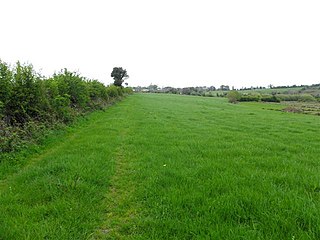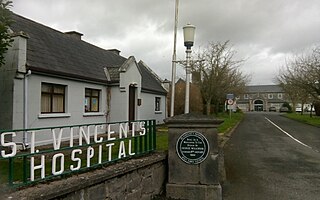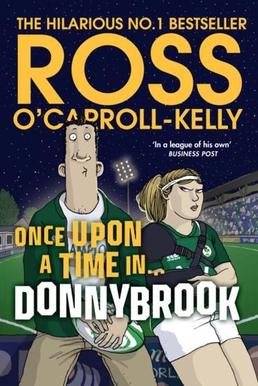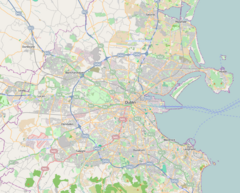Máirtín Ó Direáin was an Irish poet from the Aran Islands Gaeltacht. Along with Seán Ó Ríordáin and Máire Mhac an tSaoi, Ó Direáin was, in the words of Louis de Paor, "one of a trinity of poets who revolutionised Irish language poetry in the 1940s and 50s." According to a 1984 lecture by Desmond Egan, "Ó Direáin's genius stands revealed - to the extent that we must look abroad for poets with whom his achievement might best be compared; to Spain and Antonio Machado's sweet intensity; to Russia and Akhmatova; to Germany and the bittersweet music of Heinrich Heine."

The black cap is a plain black fabric square formerly worn as symbolic headgear by English, Welsh, Irish and Northern Irish judges in criminal cases when passing a sentence of death. When worn, the square was placed on top of the judicial wig, with one of the four corners of the fabric facing forward. The cap is based on Tudor court styles. Originally, the cap was a normal part of judicial full dress, as worn by judges on all especially formal or solemn occasions, of which passing a death sentence was just one.

Powerscourt Estate, located in Enniskerry, County Wicklow, Ireland, is a large country estate which is noted for its house and landscaped gardens, today occupying 19 hectares. The house, originally a 13th-century castle, was extensively altered during the 18th century by German architect Richard Cassels, starting in 1731 and finishing in 1741. A fire in 1974 left the house lying as a shell until it was renovated in 1996.

Fitzwilliam Square is a Georgian garden square in the south of central Dublin, Ireland. It was the last of the five Georgian squares in Dublin to be built, and is the smallest.

The Orange Mocha-Chip Frappuccino Years is a 2003 novel by Irish journalist and author Paul Howard, and the third in the Ross O'Carroll-Kelly series.

Should Have Got Off at Sydney Parade is a 2006 novel by Irish journalist and author Paul Howard, and the sixth in the Ross O'Carroll-Kelly series.

The Oh My God Delusion is a 2010 novel by Irish journalist and author Paul Howard, and the tenth in the Ross O'Carroll-Kelly series.

Myrtle Allen was an Irish Michelin star-winning head chef and co-owner of the restaurant The Yeats Room at Ballymaloe House in Shanagarry, County Cork. Besides her career in cooking, she had also been a writer, hotelier and teacher.
Isabella ("Ella") Gertrude Amy Webb was a pioneering Irish paediatrician and founder of the Children's Sunshine Home for Convalescents a convalescence home for children with life limiting diseases.

Drumane is a townland in the civil parish of Templeport, County Cavan, Ireland. It lies in the Roman Catholic parish of Templeport and barony of Tullyhaw.

Cré na Cille is an Irish language novel by Máirtín Ó Cadhain. It was first published in 1949. It is considered one of the greatest novels written in the Irish language.
Drumcartagh is a townland in the civil parish of Kildallan, barony of Tullyhunco, County Cavan, Ireland. It is also called Diamondhill.
Letitia OverendL.L.D., DStJ was an Irish philanthropist, filmmaker and motor enthusiast. Her most notable work was with the St John Ambulance Brigade and being a co-founder of the Children's Sunshine Home at Stillorgan, County Dublin with Ella Webb.
Naomi Overend was an Irish philanthropist, filmmaker and motor enthusiast.

In the Irish Free State and Republic of Ireland, the county home was an institution which replaced workhouses from 1922 onwards.

The Lonely Battle of Thomas Reid is a 2017 Irish documentary film directed by Feargal Ward, concerning the legal struggle between a small farmer and the power of international corporations and government institutions.

Copper Face Jacks is a nightclub in Dublin, Ireland that opened in 1996. It is located on Harcourt Street, below the 36-room Jackson Court Hotel. It is known for its popularity among people from rural Ireland working in the city, including teachers, nurses, Gardaí and Gaelic games players.
Colm Ó Clúbhán, also known as Colm Clifford, was an Irish playwright, author, and LGBT rights activist.

The National Socialist Irish Workers Party (NSIWP) was a minor neo-nazi party in the Republic of Ireland, founded in 1968.

Once Upon a Time in… Donnybrook is a 2022 book by Irish playwright and author Paul Howard and is the twenty-second novel in the Ross O'Carroll-Kelly series.















